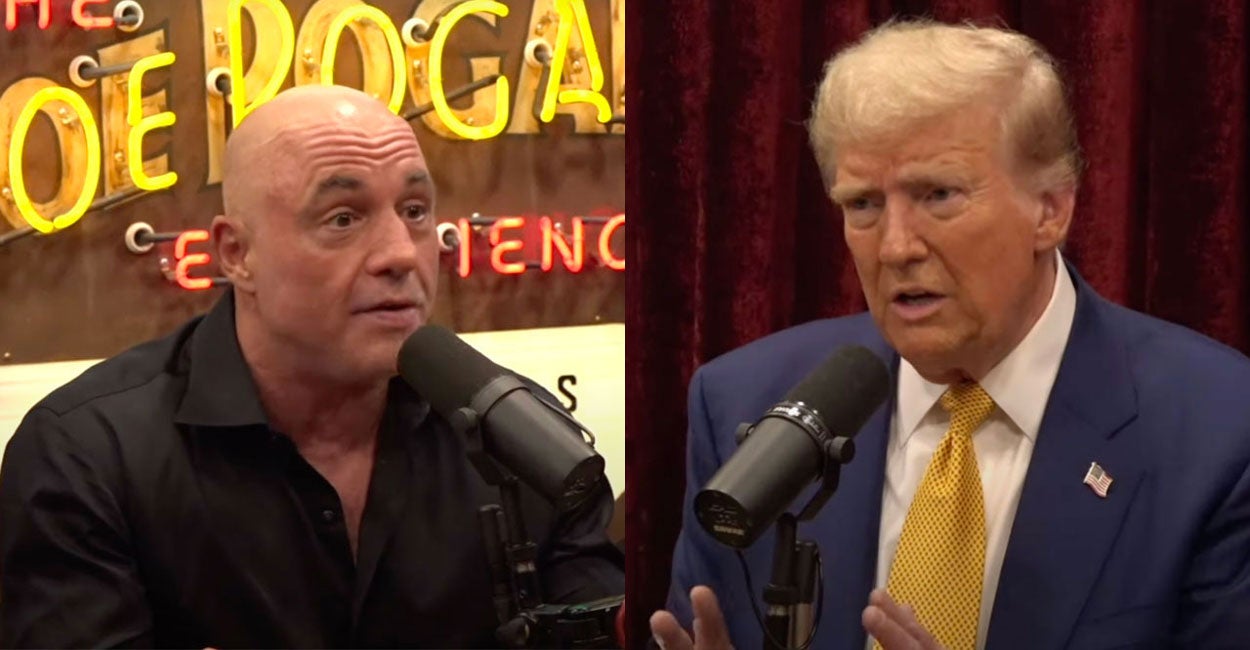
This article was originally published on Daily Signal - Politics. You can read the original article HERE

Jeff Bezos is right. Americans do not trust the news media, but he misunderstands why.
Americans are tired of talking heads and the opinions of editorialists masquerading as journalists. But this should not be confused with declining interest in news or politics; viewers are simply moving to channels where they can get an unfiltered view of the candidates from personalities they trust.
If there is one clear lesson from the 2024 election cycle, it’s that candidates for public office must be prepared to engage in this new media landscape to stay competitive, especially on long-form podcasts.
The last time we had a shift this significant was 1960, when America saw the first televised presidential debate between John F. Kennedy and Richard Nixon. The Kennedy-Nixon debate underscored the power of television to shape public perception.
Remember, past is prologue. Take, for example, Donald Trump’s appearance on “The Joe Rogan Experience.” Already, it’s racked up about 45 million views—just on YouTube alone. Trump’s interview with Theo Von received 14 million views. For her part, Kamala Harris’ appearance on the “Call Her Daddy” podcast received 733,000 views and she received 665,000 views on the “All the Smoke” podcast.
While traditional media audiences are shrinking, these appearances have outperformed the average audiences of these podcasts oftentimes 10 to 1. Remarkably, the candidates’ episodes are even outpacing episodes featuring internationally known Hollywood celebrities.
Voters are hungry to hear from the candidates on an unfiltered, authentic platform, and podcasts are filling that need.
This shift is redefining how viable candidates will approach media going forward. Those who want to succeed in politics but are afraid, or unable, to allow the public a view into who they really are going to have a ceiling on their career if they don’t do long-form interviews.
Political campaigns are going to change in two ways due to this dynamic.
- Candidates need to get comfortable in their own skin, open up and answer personal questions about heartache, addiction, and what makes their spouse smile. This open, honest, and unvarnished content mirrors what the public is receiving in their social media feeds already, so it makes sense that they are demanding the same transparency from their political leaders.
- It’s going to transform the way political professionals engage with the electorate. According to GWI, a consumer research company, the “typical” internet user spends almost 2.5 hours each day using social media platforms, equating to more than one-third of their total time online. As a result, campaign resources should shift to talking to the electorate where they are spending their time, which is on their phone. That is where people are getting their news, listening to podcasts, vegging out, and forming opinions about who they will vote for.
The reason these podcasters and creators carry so much influence is because of the community and trust they build with their audience. As James Clear, author of The New York Times bestseller of “Atomic Habits,” says about changing opinions, “Facts don’t change our minds. Friendship does.”
This election year, I was part of an effort that enlisted thousands of podcasters and social media personalities to encourage unregistered and low propensity voters to engage in the political process. Content creators in coordination with Vote4America delivered billions of impressions to tens of millions of voters. The posts calling on people to engage in the election significantly overperformed the average post of the creator, much like the success of the Trump and Harris podcast appearances.
We won’t know the full effect of all this content until all the votes are counted, but we can already see that 8.5% of all early votes are being cast by previously eligible first-time voters, meaning they are of age to have voted in past elections but decided not to.
The authenticity and trust of these podcasters and content creators is clearly having an effect on voter behavior.
What Jeff Bezos got wrong was his slight at podcasts as “unresearched.” The public clearly disagrees.
Americans are choosing podcasts over Bezos’ newspaper as their trusted source of news and information. Traditional media and candidates for office now must grapple with the new expectations of the electorate: unfiltered, unedited, authentic content.
This article was originally published by Daily Signal - Politics. We only curate news from sources that align with the core values of our intended conservative audience. If you like the news you read here we encourage you to utilize the original sources for even more great news and opinions you can trust!










Comments